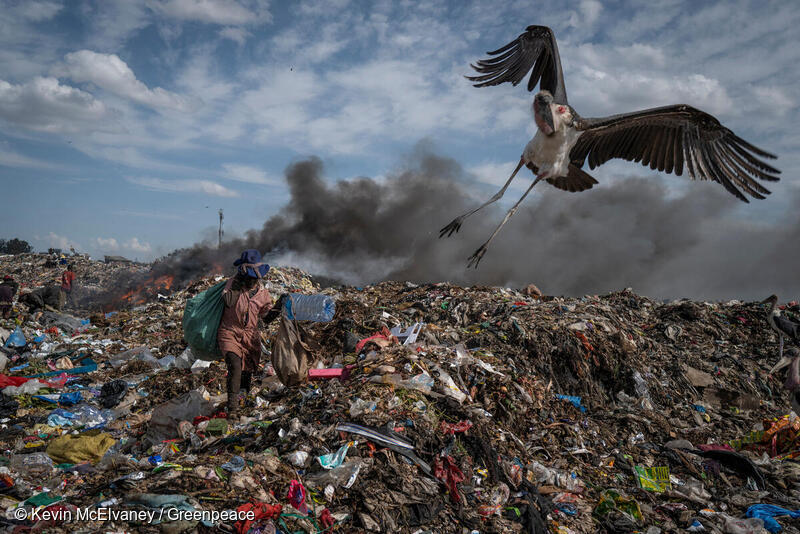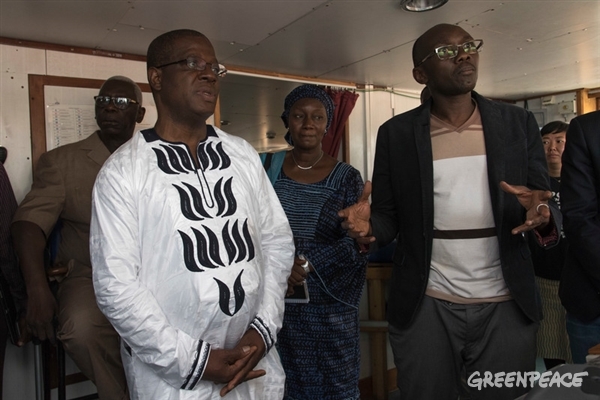
Like a wildfire, the decision by the Chinese Ministry of Agriculture (MoA) to sanction vessels involved in illegal fishing activities in Africa has spread throughout the region.
From Nouadhibou (in Mauritania) to Tumbu (in Sierra Leone) through the legendary fish market of “Alto Bandim” (in Guinea Bissau), the news has brought great hope to artisanal fishing communities. Hope that things will not be as they were before. The hope that Chinese vessels, known for their destructive fishing practices and their sometimes provocative tendencies, will be forced to adopt more responsible behavior.
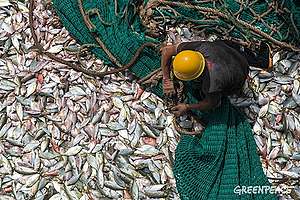
This unanimously acclaimed decision is the result of a very long lobbying effort initiated by various organisations including Greenpeace. And as a Campaigner working in West Africa, I was at one point at the heart of the crusade for China, the first fishing power in West Africa with about 300 active vessels , to transform its fishing practices.
From expedition to expedition, investigation to investigation, high-level political meetings, Greenpeace has for years documented, analyzed and presented to the Chinese authorities and the rest of the world the actions of Chinese companies in West Africa.
The last one dates back to last summer, during the “Hope in West Africa” Ship tour. During this tour, Greenpeace worked closely with fisheries official in Guinea, Guinea Bissau, Sierra Leone and Senegal to conduct joint patrols. It is precisely during these patrols that the Lian Run 34, Lian Run 47, Fuhaiyu 1111, Fuhaiyu 2222 and Fuyuanyu 379 vessels, all affected by the sanctions imposed by the Chinese authorities, were arrested.
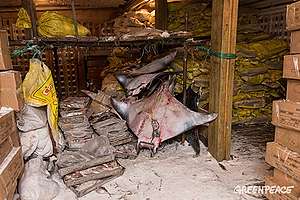
In addition to freezing the subsidies granted to these companies, suspending the long-distance fishing licenses from Dalian Lian Run Pelagic Fishery Company Ltd , the captains of Fuhaiyu 1111, Fuhaiyu 2222 and Fuyuan Yu 379 vessels have been registered on the list of masters blacklisted captains by Chinese government; China has opened a new era.
The beginning of a new era!
I can still remember that until a very recent past, China’s image in the fishing industry in comparison to the rest of the world was that of a protective father who was deliberately closing his eyes to the condemnable acts of its fishing vessels present in the four corners of the world. A father who systematically defended his offspring involved in unsavory acts.
Inevitably, this position of the first fishing power in the world ended up creating a climate of mistrust towards China, despite its affirmation of sincere friendship with the people of Africa.
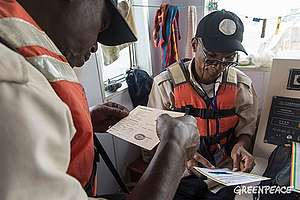
The multiple criticisms of the Chinese government over its irresponsibility for the actions of its fishing fleet finally seem to bear fruit. Since 2016, anxious to convey a more positive brand of China to the rest of the world and its partner countries in particular, the Chinese government multiplied the actions of police against those who tarnish its brand abroad.
To date, nearly 264 fishing vessels belonging to 78 Chinese distant fishing companies have been sanctioned for Illegal Unreported and Unregulated (IUU) fishing 700 million of China RMB (Ren Min Bi) and equivalent of 110.656.000 dollars of subsidy to these enterprises were canceled by the government; 3 companies lost their certificates for distant fishing activities; 15 people (business owners or captains) have been are blacklisted.
Make no mistake, in curbing IUU fishing in the region, co-operation between coastal states and flag States should be frank and sincere. It is only by sharing information with authorities on IUU fishing cases involving foreign vessels of the country of origin, among other things, that it will be possible to eradicate this scourge. It is also important for coastal States to put in place a centralized and up-to-date information system, accessible to everyone at all times.
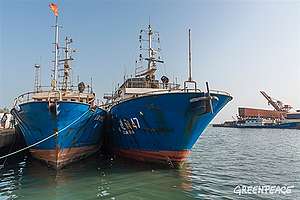
Finally, it is essential that international legal instruments in the fight against IUU fishing are systematically ratified by coastal countries and incorporated into national legislation.
Greenpeace Africa together with communities and local civil society, will continue defending our oceans.

